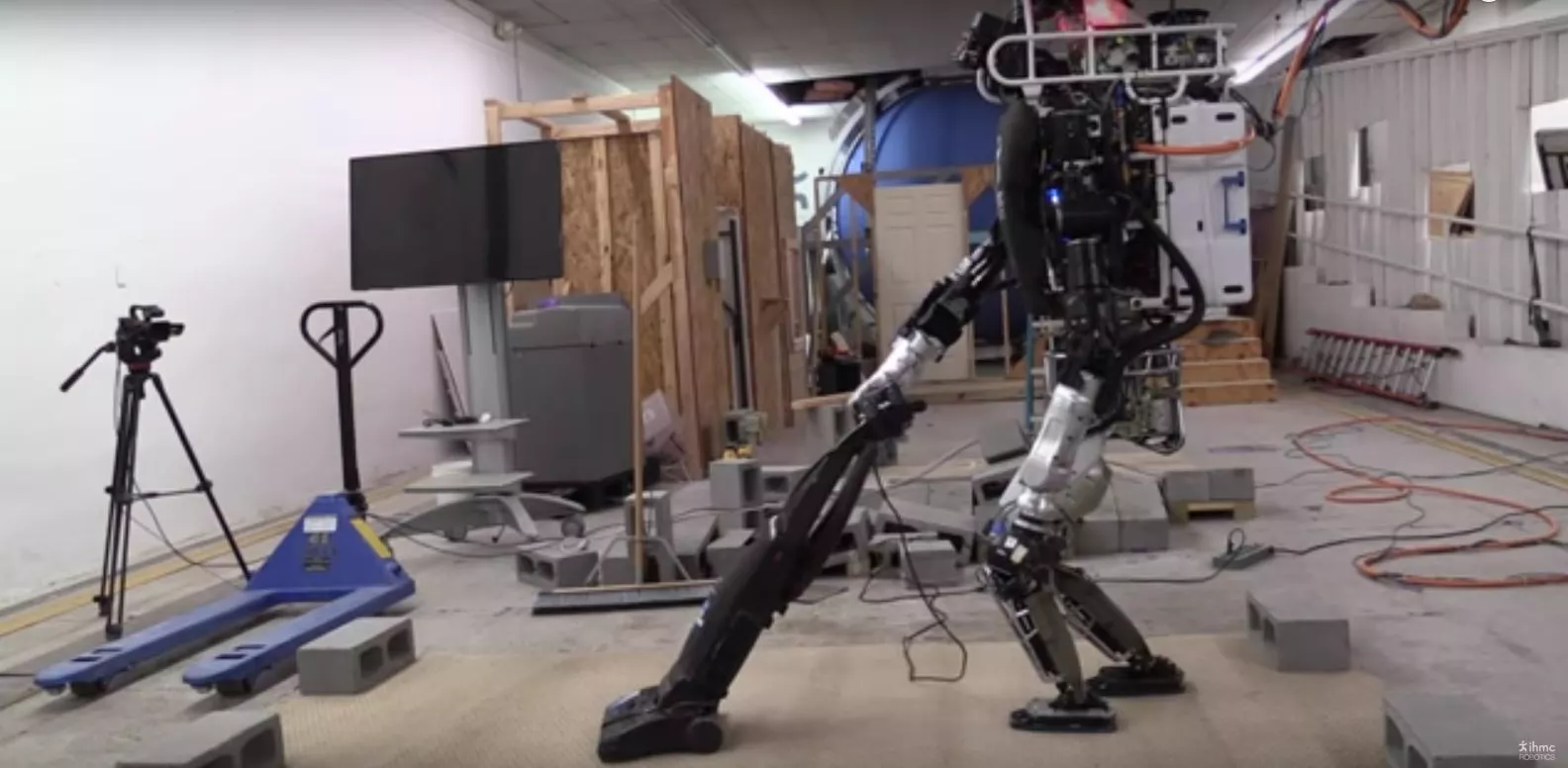If the current batch of robot vacuum cleaners don't seem Jetsony enough, then the Florida Institute for Human and Machine Cognition (IHMC) Robotics lab may have something that fits the bill – an Atlas robot pottering about the lab with a Hoover. While the scenario may not provide an accurate picture of the domestic help of tomorrow, it does show what you can do when you've got a very expensive state-of-the-art humanoid automaton going spare.
Developed for DARPA by Boston Dynamics, the 6.1 ft (1.9 m), 345 lb (156.5 kg) Atlas is designed to explore ways that robots can assist in disaster situations where it is too dangerous for humans to go. Despite appearances, it's only semi-autonomous. In other words, an operator gives the Atlas orders for what to do, then the robot figures out how to execute its commands.
The IMHC video below shows the Atlas robot doing a bit of light housework as it shifts furniture, sweeps and vacuums the floor, moves a warehouse pallet, and picks up the odd bit of wood. Though it may seem impressive to watch a robot wielding a broom, it should be borne in mind that the video runs at 20X speed and the Atlas was tethered as it carried out its tasks. In real time, the Atlas operated on a much slower move, halt, think, await orders, and execute routine that took several minutes per task.
Speaking to IEEE Spectrum, Atlas robot operator John Carff said that the purpose of the exercise wasn't to clean up the lab, but to make practical development use of the Atlas now that its main job of competing in the 2015 DARPA Robotics Challenge (DRC) finals, which finished last June, is over. Carff says that the Robotics Lab is periodically updating the robot's code and needs to be tested, but setting it the same DRC tasks got a bit boring, so the engineers came up with something more fun.

When the Atlas took part in the 2015 DRC final, it didn't win the competition, it captured attention as it ended its run by doing a victory dance for the crowd of 10,000 in Pomona, California.
For the cleaning exercise, the Atlas was programmed to walk with its arms extended to let it handle the vacuum and other objects.
Source: IHMC









